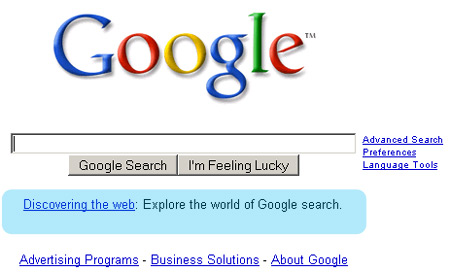Real-time search is still an emerging concept. At this point, using a real-time search engine will bring you results by time/date. This doesn’t always cater to relevancy, which is why there is still a lot of work to be done in this field.
So, if real-time results are based upon time/date, and the user’s query, it stands to reason that time and those queries are the most important components in getting your content found in these types of searches.
1. Use Keywords
This seems obvious, but use keywords in not only your content, but in your titles, and your updates. If you’re writing an article, you have to consider what people are going to include in their updates if they share it on a social network, whether this be Facebook, Twitter, or anything else.
More often than not, they are going to include the title. If the right keywords are in the title, then those keywords are also more likely to appear in any ensuing tweets, Facebook updates, etc. If someone searches for those keywords, they will be more likely to find your content in a real-time search.
The same goes for your own Tweets/status updates. Even if you are not sharing an article, if you want your update to be found, use relevant keywords. Again, obvious, but true.

2. Talk About Timely Events
Simply mentioning events that are current will put you directly into the results for any searches having to do with that topic, provided the right keywords are in play. This is a method that could and (surely is) being exploited by spammers, but that doesn’t mean you can’t provide legitimate conversation and simply put yourself on more people’s radars, without throwing links at them every time.

 3. Have a Lot of Followers
3. Have a Lot of Followers
If you have a lot of followers or friends on social networks, or even just readers of your blog, you are going to get more people sharing your content. The more people sharing your content, the more impressions of your content will be making their way into real time searches.
There is no easy way to instantly get a bunch of legitimate readers/followers. It will take some promotion. Provide useful content that people will link to and it will spread virally. Provide clear ways for them to follow you (like links to Facebook pages and Twitter accounts on your blog).
4. Promote Conversation
Whether on your blog or on a social network, spark conversations. Talk about topics that people are interested in. This is tied to number 2. The more conversations you are involved with, the more retweets (and equivalents on other networks) you are likely to get. And again, this means more impressions in real times searches.
5. Include Calls to Engagement
I recently talked about why there is more to retweeting than meets the eye for businesses. I mentioned the use of buttons like Tweetmeme’s and Digg’s. These are buttons you can put on articles that show the amount of retweets/diggs that article has. They kind of act as a meter for engagement.
These buttons are certainly not all-encompassing. They only represent the conversation on 2 channels, and not the web in general. I’m sure there are other buttons that can be used in addition.
More importantly though, they provide a “call to action” to share the content. People can digg or retweet a story with a simple click, and you’re one step closer to being found in somebody’s real-time search.
Wrapping Up
Real-time search is much more basic (at least so far) than say, Google Search. You’re not ranking for relevancy. Really, you could hardly call it ranking it all. It’s about visibility. That means, you have to get people talking about your content/updates.
Social media by nature is viral. Real-time search is nothing more than putting things in chronological order. You have to keep people talking to stay relevant to “right now.”
source: http://www.webpronews.com/




 3. Have a Lot of Followers
3. Have a Lot of Followers
 There has been a lot of talk about the deal being bad for Yahoo and good for Microsoft. This may or may not be true, as it's really way too early to tell for sure, but Microsoft CEO Steve Ballmer has been doing his best to try to convince people (mainly Yahoo shareholders) that Yahoo is in fact getting a good deal.
There has been a lot of talk about the deal being bad for Yahoo and good for Microsoft. This may or may not be true, as it's really way too early to tell for sure, but Microsoft CEO Steve Ballmer has been doing his best to try to convince people (mainly Yahoo shareholders) that Yahoo is in fact getting a good deal.